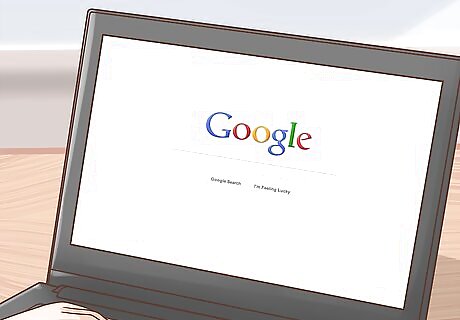
views
Finding Education Opportunities

Find training related to the kind of grants you want to write. Grants are written for a variety of fields and purposes, so find instruction that caters to the field you work in. Most training opportunities will be tailored to a specific subject or field. For example, if you work with a non-profit organization, find training and workshops that focus on grant writing for that field. If you need to write research grants, find training specifically for that.

Localize your instruction for the most effective training. If you do civil work with local groups, try to find training in your immediate area. If you work on a state or national scale, take that into consideration when choosing your training seminars and courses. Make sure the instruction you choose focuses on issues relevant to organizations in your state or region. For example, if you're writing grant proposals for charities in California, the grants must focus on information specific to California. Don't take a week long course in Alabama and try to apply that information in California.

Look for training programs that emphasize ethics. Ethical discussions should be a part of any good training course. Before signing up for a course or program, research the organization or instructor's ethical standards. A grant writer has an ethical responsibility to the organizations they work with, and it's imperative they learn ethical practices. For example, any instructor who encourages doing commissions-based grant work is unethical. The Association for Fundraising Professionals (AFP) and the Grant Professionals Association (GPA) condemn and prohibit this practice. In a commission-based agreement, the grant writer receives a percentage of the grant amount. Many grant amounts are large sums, and that money is needed to fund the person or organization receiving the grant. For example, a 5% commission on a $5 million grant award would be $250,000. A 10% commission would be $500,000. Instead, grant writers should be paid per hour for their work (usually about $100 per hour, which is very generous).

Be wary of programs offering certifications. You may run into training programs that promise to “certify” those who successfully complete their courses. These certifications are not affiliated with any professional or recognized grant-writing organization. These "certifications" are essentially certificates of completion that have very little meaning.
Getting Training

Attend a one-day seminar. Local nonprofit-management centers commonly offer one-day seminars where you can get your feet wet and pick up the basics of grant writing. If you're a university faculty member, look into one-day seminars and symposiums offered by your institution. Universities consider this a form of faculty development, so there may be no fee involved.

Get training through short-term workshops. These workshops typically last about a week and provide an immersive training experience where you can pick up a lot of information in a relatively short span of time. Check with nearby universities for opportunities. Try searching “grant writing workshops + your city or state” to find other opportunities. These workshops cost money, but many find them to be worth the cost.

Enroll in a grant writing class. Look for classes through your state or regional non-profit association. Local and university libraries may also have information about classes or other resources. Keep an eye on the local newspaper for announcements about upcoming classes. Check with nearby colleges and universities for courses, as well. Classes will charge a fee for attendance. This fee will vary depending on the institution, but they're generally a few hundred dollars.

Take courses online. Make sure that you search for online classes that focus on the specific kind of grants you plan to write. You can also find general courses that will instruct you on the basics of grant writing. The length of online courses vary from 1 hour to weeks or even months of training. The cost of the course will typically correspond to its length. The American Association of Grant Professionals is a well-known online network you can look into. Also check out Study.com's list of free grant writing courses and training programs.
Using Other Resources

Talk to your colleagues for specific information on your organization. If you're writing a business grant, your colleagues can share important information with you. Sit down with them and ask questions like: Who are our corporate vendors? What local funders have made contributions in the past 5 years? What is the state of our current relationship with each funder? This information will be invaluable once you starting writing your own grants. Read past grants written by your colleagues to get an idea of what works and how you should approach your own grant proposals.

Read books about grant writing. Many grant writers find books written on the topic to be invaluable resources. Check your local library or bookstore for books you can check out, or order books online. Books that cover the basics can be helpful when you're working on the formatting and structure of your first grants. Look for more specific books related to your field, as well. Demystifying Grant Seeking: What You REALLY Need to Do to Get Grants by Larissa Golden Brown and Martin John Brown is a popular title. Another recommended book is Grantseeker's Toolkit: A Comprehensive Guide to Finding Funding by Cheryl Carter New and James Aaron Quick.

Surf the web for free resources. You can find a wealth of grant-writing information on the internet that can be accessed for absolutely free. Do an Internet search using key words like "sample grant proposals” and "grant writing tools.” Organizations like GrantSpace and Foundation Center provide tons of resources. They also offer workshops and training programs. Study.com has a comprehensive selection of free information available, including a list of free grant writing courses and training programs.



















Comments
0 comment